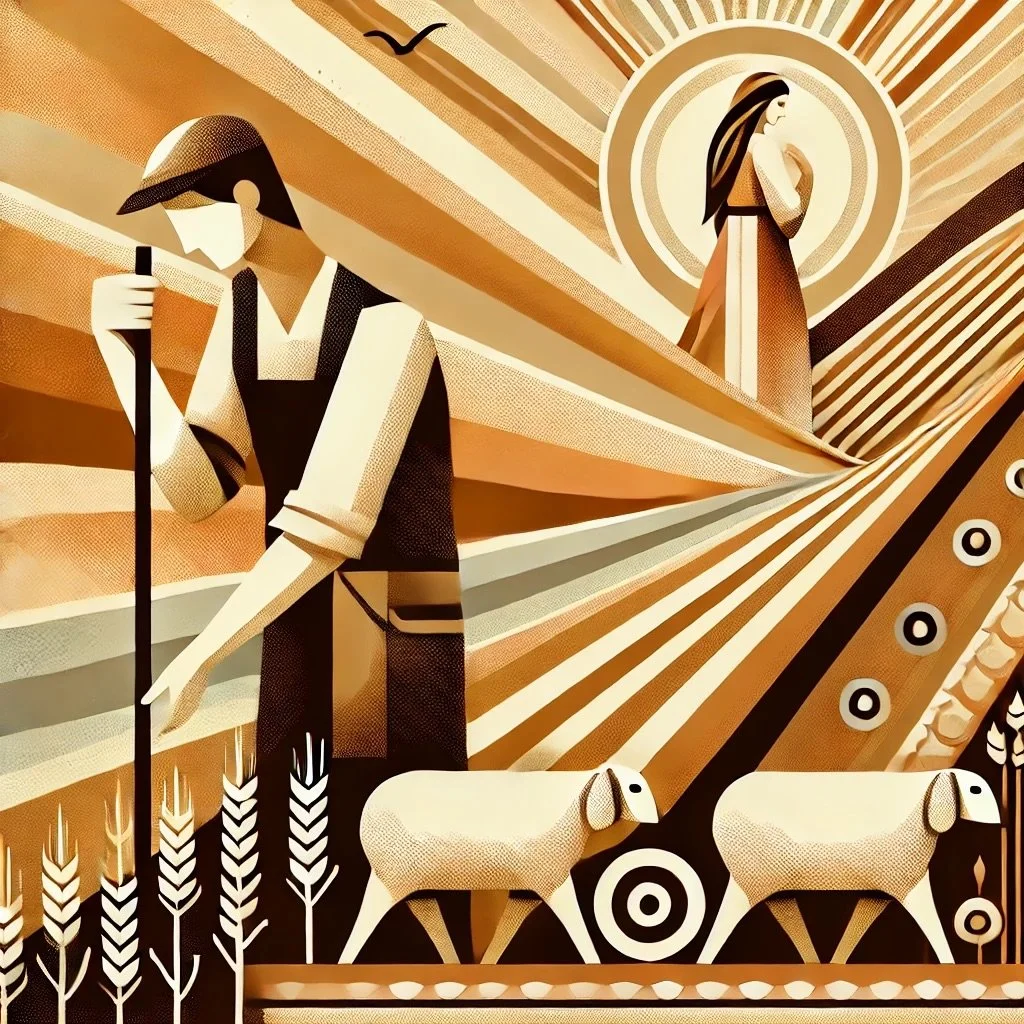Episode 3: Come Thou Long Expected Jesus
O Come O Come Emmanuel: 2024 Advent Devotional
Click Here To Listen To the Podcast.
As we continue our Advent reflections, we turn to a cherished hymn, "Come Thou Long Expected Jesus," written by Charles Wesley. This beautiful carol, though brief with just two verses, carries profound themes of grace and Christ’s kingship. It reminds us that Christ came into the world to set us free from sin and fear, offering salvation by grace, not by works.
The Hymn’s Message of Grace
The hymn begins with the poignant plea, "Come thou long expected Jesus, born to set thy people free; from our fears and sins release us, let us find our rest in thee." In its second verse, it proclaims Jesus as King, "born to reign in us forever, now thy gracious kingdom bring." These themes of waiting for redemption and recognizing Christ's role as King resonate deeply during the Advent season.
The Waiting People: Jacob’s Story
This theme of waiting and grace is beautifully illustrated in the life of Jacob, a biblical figure whose journey reflects both human imperfection and divine faithfulness. Jacob’s story begins with his contentious relationship with his brother Esau. With the help of their mother, Jacob deceives his father, Isaac, to steal Esau’s blessing, leading to years of estrangement.
Jacob’s story highlights the struggles of waiting—waiting to reconcile with Esau, waiting to marry Rachel, and waiting for God’s promises to be fulfilled. Despite his flaws and failures, God’s grace remains evident throughout Jacob’s life.
Jacob’s Journey of Grace
Jacob’s years of service to Laban show his perseverance, as he works for 14 years to marry Rachel, the woman he loves. Even in deception—whether by Jacob or against him—God’s faithfulness is constant. This reflects the reality of grace: God’s unmerited favor extended to flawed and broken people.
Later in Jacob’s life, as he prepares to reunite with Esau, we see him wrestling with God, both physically and spiritually. God not only blesses Jacob but also renames him Israel, reaffirming the covenant promises made to Abraham and Isaac. Despite Jacob’s unworthiness, God’s steadfast love and faithfulness endure.
God’s Promise Fulfilled Through Judah
In Jacob’s final blessings to his sons, he speaks of Judah, proclaiming that “the scepter shall not depart from Judah” (Genesis 49:10). This prophecy foreshadows the coming of Jesus, the Lion of Judah, who would bring salvation to the world. Though Judah’s own life was marred by sin, God’s grace worked through him to fulfill His plan of redemption.
The lineage of Christ, filled with imperfect individuals like Jacob and Judah, highlights the profound message of Christmas: that Jesus came to save sinners and bring grace to those who could never earn it on their own.
Christ: The Fulfillment of Grace
As we celebrate Advent, we see how the story of Jacob points to the ultimate fulfillment of God’s promises in Christ. Jesus’ birth, life, death, and resurrection are the culmination of God’s plan to redeem humanity—a plan woven through the lives of people like Jacob, who waited on God’s faithfulness despite their imperfections.
The hymn’s closing lines encapsulate this truth: “Born thy people to deliver, born a child and yet a king, born to reign in us forever, now thy gracious kingdom bring.” Jesus, the King born in a manger, came to reign in our hearts and to extend God’s grace to all.
Waiting on Grace This Christmas
As we reflect on the Advent season, Jacob’s story encourages us to trust in God’s promises, even in seasons of waiting. Just as Jacob and the people of Israel waited for the Messiah, we too can rest in the hope and grace that Christ brings. This Christmas, may we remember that God’s grace is sufficient, and His promises are always fulfilled.
“Come Thou Long Expected Jesus” reminds us of this profound truth: the baby in the manger is a sign of God’s unfailing grace and the hope of all nations.

